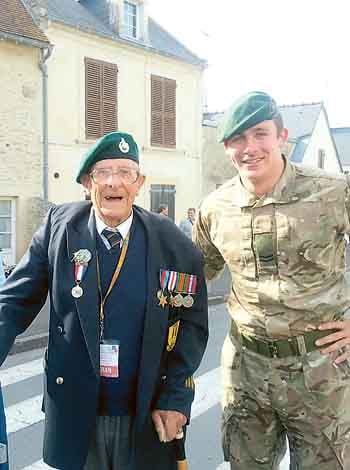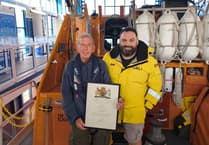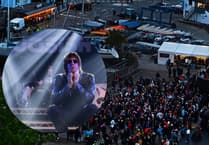Three times he was seriously injured, but after every fall he returned to the battlefield and valiantly fought on until the end of the Second World War. Royal Marine Commando George 'Ted' Owens was 19 on June 6, 1944, when he landed on Sword Beach, in France. He was in the first wave of men ashore and within half-an-hour he was involved in an explosion, which colleagues thought had killed him until they turned him over and his eyes moved. He was immediately evacuated and spent two-and-a-half months in hospital with shoulder, back and chest wounds. Once he was discharged he was involved in the Battle of Walcheren Island, in the Netherlands, where he was injured again in an explosion which ripped through his knee. After he was fit enough to walk, he went straight back into service and joined the Battle of the Bulge, in the Ardennes region, where a piece of shrapnel flew through his neck and windpipe. "I spent a lot of the war in hospital, but then I'd get back up and get on with it; it is what we had to do," he said. "We did all the training, but it wasn't until we actually landed on Sword Beach and I stepped over some bodies that I realised it was for real. I took cover behind a tank and fired five or six rounds at a German position when a shell hit the tank and there was an explosion leaving me paralysed. Everyone thought I was dead and it was only when someone turned me over and saw my eyes move that they realised I was alive." Now 89, Ted has just been back to Arromanches, the site of his first, and last, landing on the Normandy Beaches with 41 Commando Royal Marines. He started the war working in the fire service in Pembroke Docks before going on to become a Royal Marine Commando Seventy years on and he has proudly marched with his veteran colleagues through Arromanches, along the same streets that they helped liberate. "It wasn't bravado that kept us going," he said, "I was absolutely terrified, but we had a job to do and we were determined to get it done." The D-Day landings were the largest seaborne invasion ever undertaken and the events of June 6, 1944, signified a turning point in the Second World War in Europe. • Also see page 10 for a report and picrtures of the D- Day anniversary events in Pembroke Dock.





Comments
This article has no comments yet. Be the first to leave a comment.